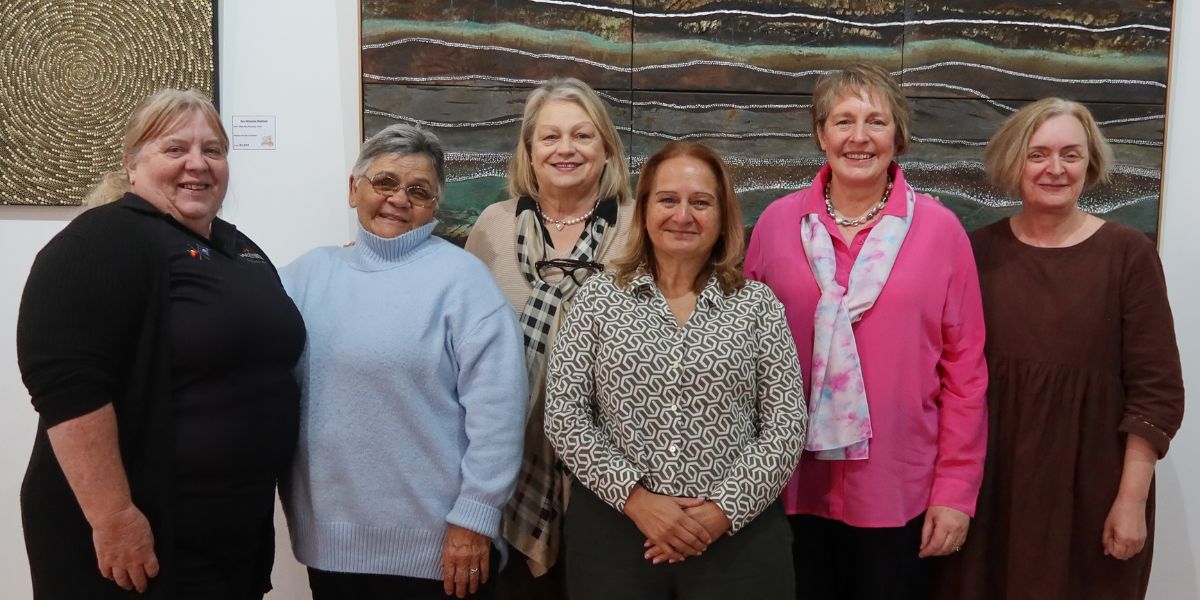Currently there are more than 433,000 Australians living with dementia, and by 2058, that figure is expected to rise to almost 1.1 million people, according to Dementia Australia, with rates of dementia three to four times higher in Aboriginal populations than the rest of the country.
Talking, or in Indigenous communities, “yarning,” about dementia can help people maintain their dignity and self-esteem, according to health professionals’ group HealthWISE.
HealthWISE New South Wales recently launched a new video series about dementia, at the Armidale Cultural Centre, to support Aboriginal and Torres Strait Islander carers looking after people with dementia and related illnesses.
Integrated Team Care coordinator Valerie Cutmore said the videos offer practical guidance and personal stories from other carers who’ve walked the same path.
“The Yarning About Dementia videos build on a long running series we developed a few years ago called Caring About Dementia, which feature advice from dementia carer consultant Sally Henry and personal stories from a local carers group.” said Kamilaroi woman, Valerie Cutmore.
“Sally also offers her extensive knowledge, gained from more than 25 years of working with both people living with dementia and their carers.”
‘’You don’t understand until you’ve lived the experience of caring for a family member with dementia, and the videos capture what dementia means and the impact of it on me as a carer and my family – and reinforce that you’re not alone.”
‘’It’s reassuring to know there are resources out there to help us deal with it.”
The videos cover understanding dementia, everyday tasks such as showering, driving, agitation and trauma, resources for carers and the importance of self-care.
“The key is to realise we’re not forgotten,” HealthWISE Healthy Communities Manager and Gomeroi/Anaiwan woman Kerry Strong said.
She adds the series is culturally safe and considers the different family structures and experiences of Aboriginal people.
Anaiwan Elder and carer Lesley Widders said it was important to hear from an Indigenous perspective, and for Aboriginal people to know that they have been included and learn where they can find help.
“I took part in the video project to give back to my community. But also, to learn about the many stages of dementia.” said Widders.
“We always wanted to do something for the Aboriginal community because we knew there was a piece of the puzzle missing.”
Although there are no national-level estimates of the number of Aboriginal people with dementia, studies examining different communities have consistently found that dementia prevalence rates are about three to five times as high as rates for Australia overall, according to the Australian Institute of Health and Welfare.
The Institute said rates of dementia for Indigenous people in remote and rural communities are among the highest in the world, and that evidence of high prevalence, younger onset, and high incidence of dementia, suggests that without interventions to help moderate the impact of it, the burden among Aboriginal people will continue to grow in coming years.
Yarning about Dementia builds on the original Caring About Dementia series, with a stronger focus on the unique needs of Aboriginal and Torres Strait Islander peoples.
The first three videos are available free on the Older Australians page of the website www.healthwise.org.au, with another eight to be released shortly.
Something going on in your part of the New England people should know about? Let us know by emailing newsdesk@netimes.com.au

